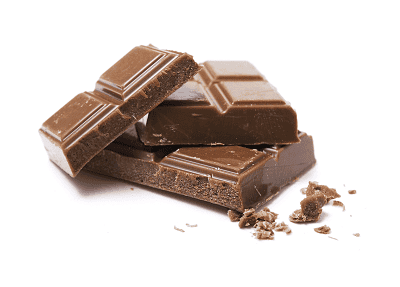We Can Get Addicted to Anything
 Addictions typically develop to substances or activities that make us feel good. For instance, alcohol can relax us and cocaine can make us feel energized and happy. Substances that influence emotion because of their biochemical effects are called psychoactive. Even substances which are not “biochemically psychoactive” can become “psychologically psychoactive” because of learned associations to them. For instance, someone who drinks water after every workout might associate water and relaxation. Or an herbal tea (which has no caffeine) might be associated with peacefulness or relaxation.
Addictions typically develop to substances or activities that make us feel good. For instance, alcohol can relax us and cocaine can make us feel energized and happy. Substances that influence emotion because of their biochemical effects are called psychoactive. Even substances which are not “biochemically psychoactive” can become “psychologically psychoactive” because of learned associations to them. For instance, someone who drinks water after every workout might associate water and relaxation. Or an herbal tea (which has no caffeine) might be associated with peacefulness or relaxation.
To help clarify the significance of substances or activities making us feel good, let’s make a comparison to something that makes us feel bad: phobias. Most of us are exposed to elevators, freeway driving, heights, insects, and other aspects of daily life. Only a few of us develop phobias (excessive fears) to these objects. Although it is possible to develop a phobia to anything, in practice most phobias occur to predictable objects and situations. These phobias are predictable because their objects or situations are fearsome in at least some degree to most people, because of the possible (even if unlikely) connection to survival. If elevator cables break, an auto accident occurs, a fall occurs, or you get bitten by a disease carrying insect, death may result. We get phobic about these kinds of objects. We typically don’t get phobic about desks, books, sidewalks, or other almost always benign objects, but we could, under the right circumstances.
Similarly, addictions typically develop to substances or activities that make us feel good or happy. We can learn or associate a connection between any substance or activity, and an emotion. It’s just easier to make the connection to emotion when the substance or activity is already doing most of the work. Alcohol is naturally relaxing for most. Cocaine is naturally uplifting (at first, in small doses) to most. If the substance is water, the connection to an emotion would typically take longer to make.
The point of recognizing that we could be addicted to anything is to recognize that ultimately addiction is a type of relationship. Addiction is not ultimately dependent on the nature of the substance or activity, because it could happen with any of them. Although we get phobic about typical things, we could become phobic about anything.
If addiction is a relationship then there is no one “most addictive” substance or activity. Heroin or crack cocaine is often suggested to be the most addictive substance. More individuals might seek a second experience with these substances than might with some other substances (although no one has ever proven this). However, many individuals do not seek a first experience. Many other individuals stop after a few experiences. Furthermore, those who have quit heroin and cigarettes, or crack cocaine and cigarettes, state that even though they enjoyed heroin or cocaine more, the cigarettes were harder to stop. Like all relationships, addictive relationships have many components.
For a particular individual there may be a “most addictive” relationship. This is often called the “drug of choice.” Why this drug (or activity) is most favored is undoubtedly a complicated interweaving of biology, personal history, personality and circumstance that is well beyond our current ability to explain. We are also not able to explain how individuals with a drug of choice and possibly several additional addictions may also have a mild or non-existent positive response to other “addictive” substances or activities. Although we might be addicted to almost anything, we are usually very far from being addicted to everything.
An addiction can develop to any substance or activity, but addictions tend to develop only in those which under normal circumstances make us feel good or happy. An individual may have several addictions, but not “all” addictions. It is not the substance or activity that is ultimately the problem, but our relationship to it. Recovery involves changing that relationship.
